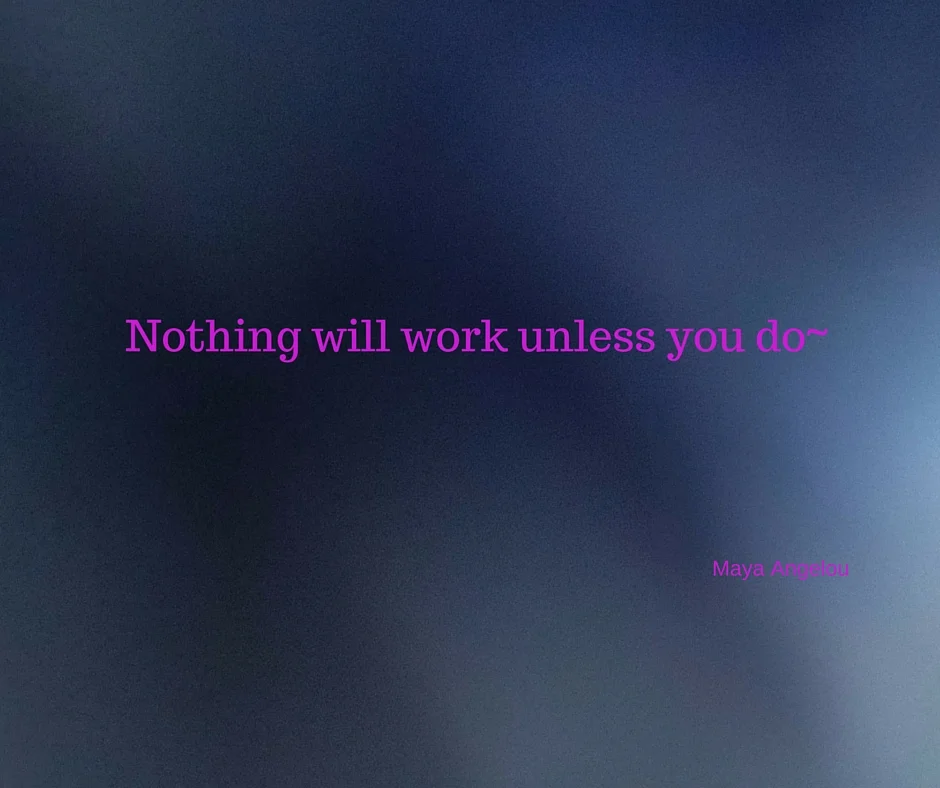
We blog regularly and post items we feel maybe of interest to our wonderful clients; check back regularly to see what we have posted.
Visual Impairment and Its Effects on Mental Health
Check out our latest vlog HERE!
Nora talks through visual impairments and their effects on mental health. Learn tips and tricks for working through impairments and how to improve your mental health today!
I have a passion for singing with people and helping them find a sense of hope in their most vulnerable moments. I believe that everyone has a right to be heard and validated. I use a client-centered, collaborative approach allowing the person the opportunity to discover the barriers that keep them from living their best life. In addition, I serve as a guide for the client to reach their own personal goals.
I enjoy working with people of all ages, including children, teens, and adults. My therapeutic space is always compassionate and non-judgmental to allow a safe and comfortable place to navigate and explore what is needed.
I am a member of the California Association of Marriage and Family Therapists (CAMFT).
World Alzheimer’s Day
There are at least 8 different types of dementia, not to mention there are mixed combinations as well. Some of the most common ones are: Alzheimer’s Disease, Vascular Dementia, Dementia with Lewy Bodies, Parkinson’s Disease Dementia, Frontotemporal Dementia, Huntington’s Disease, Creutzfeldt-Jakob Disease, Wernicke-Korsakoff syndrome, and Normal Pressure Hydrocephalus. Symptoms vary by type, but 10 of the most common warning signs are:
Every year September 21st is World Alzheimer’s Day around the world. This international campaign is aimed to raise awareness and challenge common stigma that surrounds Alzheimer related dementia.
Many people still wrongly believe that dementia is normal aging, which is why it is important to provide more awareness and knowledge.
There are at least 8 different types of dementia, not to mention there are mixed combinations as well. Some of the most common ones are: Alzheimer’s Disease, Vascular Dementia, Dementia with Lewy Bodies, Parkinson’s Disease Dementia, Frontotemporal Dementia, Huntington’s Disease, Creutzfeldt-Jakob Disease, Wernicke-Korsakoff syndrome, and Normal Pressure Hydrocephalus.
Symptoms vary by type, but 10 of the most common warning signs are:
- Memory loss
- Difficulty performing familiar tasks
- Problems with language
- Disorientation regarding time and place
- Poor or decreased judgment
- Problems keeping track of things
- Misplacing things
- Changes in mood and behavior
- Challenges understanding visual and spatial information
- Withdrawal from work or social activities
When these signs are new and affecting your daily life or the life of someone you know, you should talk to your doctor or seek out more information. Having an examination can exclude other treatable conditions (ex. Thyroid problems, urinary tract infection, depression). If the diagnosis is dementia, then it will give you the opportunity to obtain more information, resources, and support for yourself and those close to you.
When dementia affects someone close to you like a partner or parent, it can cause a lot of stress, anxiety, and grief.
My colleague Jill Johson-Young and myself are hosting a free virtual support group every third Saturday of the month to support and provide resources for the caregivers.
Some of the tips we share in there are:
- Never argue with the person who has dementia. Instead, agree. Remember it’s the
disease, not the person.
- Never reason. Instead divert.
- Never shame, instead distract.
- Never lecture, instead reassure.
- Never say “remember”, instead reminisce.
- Never say “I told you”, instead repeat.
- Never say “You can’t”, instead say what they can do.
- Never demand, instead ask.
- Never condescend, instead encourage.
- Never force, instead reinforce.
You can also find some more resources on our facebook page:
https://www.facebook.com/Riversidedementiasupport
If you or a loved one would like more information and/or support. I encourage you to reach out to me or our office Central Counseling Services (951) 778-0230. We have counselors available 6 days a week in two locations: Riverside and Murrieta.
Ilse Aerts, M.S., LMFT#96211, LPCC#6135
Let's Talk About It: Codependency
Many of us are quite familiar with the word codependency. We often associate it with someone who is “needy” or who relies on others to do every day life. In reality, codependency is far more than just relying on others; it is a maladaptive way of maintaining interpersonal relationships and a skewed view of self. Let’s talk about a few yellow flags of codependency in any relationship…
Let’s Talk About Codependency…
Many of us are quite familiar with the word codependency. We often associate it with someone who is “needy” or who relies on others to do every day life. In reality, codependency is far more than just relying on others; it is a maladaptive way of maintaining interpersonal relationships and a skewed view of self.
How then can we spot a codependent relationship? Well, the answer is not too simple since we often get misinformed through media. Before I suggest a few yellow flags to look for, please keep in mind the following two points:
Shame: it is my belief that shaming people for having patterns of codependency is unfair and harmful. A person with codependent traits is only trying to relate and survive in this harsh world
and
Culture: it is important to recognize that interdependence (a balanced relationship where both parties work together to meet each other’s needs) is not the same thing as codependency.
Those two points set aside, the following are just but a few characteristics (or yellow flags) of codependent relationships and is not an exhaustive list. One last point, as informative as the below information can be, remember to use it as a resource to compliment a responsible discussion with a health care professional.
Yellow flags of codependent relationships and/or codependent tendencies:
Guilt: difficulty saying “no” due to fear of harming other’s feelings
Prioritizing needs: difficulty putting your needs first, before those of others.
Isolation: other relationships and needs are placed second over spending time with the person you are enmeshed with.
Circular relationships: a person needs another person, who in turn needs to be needed
Unsolicited caretaking: when a person feels that they have to care of everyone all the time
Addiction: often, one or both people in the codependent relationship have an addiction problem to substances
Lack of differentiation: difficulty identifying own needs/wants
In life we have balance, thus, if you believe you are in a codependent relationship, know that the opposite exists- you can grow to have healthier relationship patterns! If you recognize a love in the above descriptions, please help destigmatize codependency and provide them with support so that they can find their own path to healing.
If you are interested in obtaining more information, check out the Co-Dependent Anonymous website https://coda.org/meeting-materials/patterns-and-characteristics-2011/
Do not forget to schedule an appointment with a mental health professional
Feel free to contact us by calling 951-778-0230 or texting us at 951-323-2182
As a couples and family therapist, I have vast training and experience working with Children (ages 4 to 12 years old), adolescents (ages 13 to 19 years old), young adults (ages 20 to 35 years old), and middle age/older adults and family therapy. I also have a background working with individuals and families impacted by crime, and have provided crisis intervention/stabilization.
I have a special interest in helping my clients address a variety of mental health concerns, including anxiety, depression, self-esteem, relational issues, women’s health, Latinx, grief/loss, autism, overall life transitions, issues concerning LGBTQIA+ community, trauma and PTSD. I have worked in multiple settings including schools, community mental health agencies and private practice.
I graduated from the California School of Professional Psychology at Alliant International University with an MA in Marriage and Family Therapy and an emphasis on Latin American Family Therapy. I provide psychotherapy services in both English and Spanish.
If you are curious about what therapy can look like but unsure it is for you, I would love to discuss options to address your current situation.
Visual Impairment and Its Effects on Mental Health
Check out our latest vlog HERE!
Nora talks through visual impairments and their effects on mental health. Learn tips and tricks for working through impairments and how to improve your mental health today!
I have a passion for singing with people and helping them find a sense of hope in their most vulnerable moments. I believe that everyone has a right to be heard and validated. I use a client-centered, collaborative approach allowing the person the opportunity to discover the barriers that keep them from living their best life. In addition, I serve as a guide for the client to reach their own personal goals.
I enjoy working with people of all ages, including children, teens, and adults. My therapeutic space is always compassionate and non-judgmental to allow a safe and comfortable place to navigate and explore what is needed.
I am a member of the California Association of Marriage and Family Therapists (CAMFT).
Perspective – what being a client taught me about being a better therapist
As a therapist, my clients often ask, “do you have a therapist?” And, I answer honestly, “yes.”
One would think that it would be confusing or even unethical to divulge such personal information to my clients that I, too, like them, have seen, and/or is currently seeing my own personal therapist. It can lead to further personal questions. Such as:
“What do you talk about?”
“Do you have the same problems as me?”
And, the biggest one: “If you go see a therapist, how can you help me with my own problems?”
Here’s the thing about seeking out help from a third party that is uninvolved with the issues that are going on in your life (or mine): they are in a position to provide unbiased perspectives (see what I did there) on what is happening and to guide you (or me) through situations where you (or I) may feel stuck.
Therapy benefits everyone; even therapists. We often hear of self-care and how that is crucial to all parts of our health – mental, emotional, and physical. If you could think of therapy as another way of self-care, why wouldn’t a therapist who engages in providing therapy to their clients on a daily basis want to engage in the same type of care?
Therapy is beneficial and therapists who engage in their own personal therapy would only prove to gain more insight into themselves. This increased intimate awareness just adds to their self-care routines and provides them with further opportunities to become a better therapist for their clients.
Below are a few reasons why:
Occasionally, problems from life are not life-threatening or traumatic. Yet, we still encounter issues that cause us stress! Therapy can help us deal with these emotions from these taxing encounters.
Other times, we see a problem, we know it’s there, and yet, we just cannot figure it out. We cannot find the answer no matter what we do. Therapy can help dissect those problems and guide us to a solution that best fits us.
Talking with a therapist can help us find perspective (ah, there it is again!) and help us build up and strengthen coping skills that we’ve either had all along or just needed reminding of.
Finally, therapy can really clear out the cobwebs or pull away the wool from our eyes so we can see clearer about what is truly important for us and our overall wellness.
Just from that list, one could see that anyone could take advantage from having a good therapist. When I am confronted with a client who now feels somewhat tense about their own therapist going to therapy, I explain those points and it dismisses a few of those nerves. We can all gain from being able to clear our minds and set our hearts at ease through the process of therapy and with the guidance and perspective of a good therapist. There is no shame in needing help.
I believe everyone has a right to be heard and feel comfortable in their own space. My methodology to the therapeutic practice is eclectic and I consider each client to be the guide in their own progression. I offer a holistic, client-centered approach to the process, allowing the person the opportunities to discover how their pasts can lead into their futures.
I have a passion for working with people of all ages, including children, teens, young adults, adults, couples/families, and people navigating all stages and phases of their lives. My therapy rooms are always non-judgmental and compassionate to ensure that the clients can feel safe to explore what is needed.
I am a member of the American Association of Marriage and Family Therapists (AAMFT), the California Association of Marriage and Family Therapists (CAMFT), and I am fluent in American Sign Language.
Why being a therapist is better for me than being almost anything else
I heard a Minister, when I was about 14 years old, who really set a fire in my soul. He talked about humanity, and the need for folks to help each other in life.
My jobs were being a mom, a secretary, an aide to children in school, and a “parent advocate” but eventually, the call to be a therapist was strong. It took hours, years, to get through school to learn this trade/ministry/service.
In this service of being a therapist, it encompasses counseling, addiction counseling, play therapy, relationship building with families and couples, and helping those in need. I get to help folks work on mindfulness, person-hood, mental health, spirituality, emotions, principles, anxiety, philosophy, self-worth, and their place in the community and world.
I’ve learned through the years this "therapist gig" is what I was called to do, and this by far is the most rewarding career, personally, to me. Good colleagues, clients who want to make life long changes in their lives, or just a small change - to be happier and more fulfilled in their work.
Something that matters to me a lot is that this is a great way to create something that can be quickly be passed on to others. My heart lights up when I am able to supervise younger folks who also want to be therapists - no matter what the age, right out of a Master’s Program and in their 20’s, or those who have a second or third career, and enter this magnificent arena.
I have had great therapists too, one in high school during a very dark time in my life, and one in my 30’s. These two women had helped me’ in very different ways but they helped me and I wanted to help others as they had.
The act of sitting and facing a client, and the interactions and conversations, are more than just a friend across the table, but a communion of minds and hearts mending trauma, bringing forth a sense of hope to the client and a willingness to reach and grow in life.
I am grateful to have been doing this work for the last 35 years. And also grateful that I do a job that I feel passionate about, in the service of others.
Judy McGehee, LMFT, works out of the Riverside office at Central Counseling Services. She is passionate about helping people. Judy is understanding, kind and has a good ear for just listing. She feels that therapy can help if we are willing to try. To talked to Judy call us to set up an appointment.
Need a A Push To Start Therapy?
Counseling can be scary; we make it not so scary. Call us today.
17 Inspirational Quotes to Motivate YOU to Start Therapy Today
Contemplating therapy? Thinking about picking up the phone is the first step in your journey towards emotional wellness. Sometimes we just need a little something extra to help us become excited and invested in committing to change. We hope one of the following quotes will resonate with you and give you the courage you need to take the next step.
1. There is no greater agony than bearing an untold story inside you--Maya Angelou
2. When we talk about our feelings, they become less overwhelming, less upsetting, and less scary--Fred Rogers
3. If the only tool you have is a hammer, you tend to see every problem as a nail--Abraham Maslow
4. My potential is unlimited--Success Mantra
5. You can't change how people treat you or what they say about you. All you can do is change how you react to it--Unknown
6. Until you make the unconscious conscious, it will direct your life and you will call it fate--Carl Jung
7. Procrastination is one of the most common and deadliest diseases and it's toll on success and happiness is heavy--Wayne Gretsky
8. All great changes are preceded by chaos--Deepak Chopra
9. When we are no longer able to change a situation, we are challenged to change ourselves--Viktor Frankl
10. Nothing will work unless you do--Maya Angelou
11. In any given moment, we have two options: to step forward into growth or to step back into safety--Abraham Maslow
12. Discovering the truth about ourselves is a lifetime's work, but it's worth the effort--Fred Rogers
13. The future depends on what you do today--Mahatma Ghandi
14. I'm not telling you it's going to be easy. I'm telling you it's going to be worth it--Art Williams
15. Success is the sum of small efforts, repeated day in and day out--Robert Collier
16. The secret to change is to focus all of your energy, not on fighting the old, but on building the new--Dan Millman
17. And you? When will you begin the long journey into yourself?--Rumi
We hop we have inspired you to let us walk with you on your path. We want to help you make that first step. Call us today1













